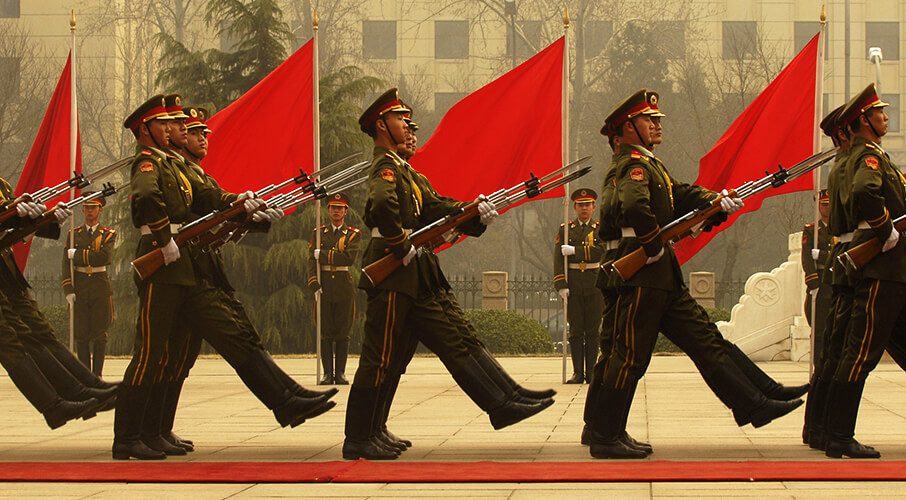This article originally appeared in the Toronto Star.
By Charles Burton, November 30, 2022
Back in 1989, Canada got a jolting wake-up call on the true nature of China’s Communist Party regime with the ruthless suppression of the nascent Democracy Movement, crushed by tanks that left their bloody tread marks all over Tiananmen Square.
This week, massive demonstrations have emerged all over China calling for the removal of “emperor for life” party General Secretary Xi Jinping. But while the 1989 movement was about demanding that the party implement democratic reforms, the current movement demands the end of Communist rule altogether.
This is serious stuff.
Meanwhile, here in Canada, within every federal government since 1989, there has never been consensus on developing a coherent China policy. Federal cabinets have been split between believers that the primary purpose of relations with China is to promote Canadian prosperity by maximizing trade and investment with that régime, taking care not to implement measures that would incur the ire of Beijing; and those convinced that Ottawa must more actively address China’s security threat to Canadian sovereignty and its determination to undermine the rules-based liberal international order.
Sadly, the “Canada’s Indo-Pacific Strategy” document released Sunday maintains characteristics of this schizophrenic approach that has bedevilled Canada’s approach to China for far too long. Indeed, in the Global Affairs Canada (GAC) summary announcing our new Asia-centric policy, all 1,321 words, China is remarkably not mentioned once. Maybe this half-hearted approach reflects GAC’s resentment of U.S. pressure on our traditionally China-friendly foreign policy establishment to acknowledge new power realities.
After U.S. Secretary of State Antony Blinken paid a visit to Ottawa last month, a new Canada-U.S. Strategic Dialogue on the Indo-Pacific “to further align approaches to the region” was announced. Getting such a directive from “head office” will not have gone down well within the walls of GAC, but the reality is there are profoundly urgent reasons to address the challenges that China’s rise has been posing to Canada’s democracy and to our place in the world.
A core statement in the Indo-Pacific Strategy is a mealy mouthed characterization of China as an “increasingly disruptive global power,” when what China really is to us is a “strategic competitor.” The new strategy’s supposition that Beijing will collaborate sincerely with Canada on climate change, global poverty initiatives, or putting the brakes on North Korea’s terrifyingly dangerous nuclear missiles program — if we appease China by turning a blind eye to the Uyghur genocide and human rights and security issues — is naive at best.
But the strategy has no mention of genocide (which would force Canada to take measures under our UN treaty obligations); nothing to suggest substantive Canadian action on Chinese police operations on our soil to menace people in Canada; and no addressing China’s pervasive espionage to obtain dual use military technologies, although a stated intention to allocate more China expert resources to CSIS and the RCMP is promising.
Most significant of all, the Indo-Pacific Strategy included no promise of legislation requiring transparency and full disclosure about any benefits from China going to people influential in Canada’s China policy formulation.
Other shortcomings include no clear statement on where Canada stands on defence of Taiwan’s right to self-determination against Chinese military threats. In terms of actual commitment, the $400-to-$500 million a year allocated to the Indo-Pacific Strategy falls far short of the amount needed to fulfil even a single promise, like defending Canada’s Arctic sovereignty against China’s northern forays, or meaningfully helping defend Japan, South Korea and other regional allies from Chinese or North Korean military activity.
Instead of a sober appraisal about Beijing’s bluntly authoritarian disposition on the global stage, and its candid intention to arbitrarily rule the world order, what we have instead is a grossly underfunded compromise statement that suggests Canada will not be making any fundamental changes in our approach to China.
While the new strategy will be seen by some as a starting point, in the months ahead we can expect Japan, South Korea, Japan, Taiwan, Australia, the UK, Europe and the U.S. to continue imploring Canada to get our act together, and start getting China right.
Charles Burton is a Senior Fellow at the Macdonald-Laurier Institute and served as a diplomat at Canada’s embassy in Beijing.






